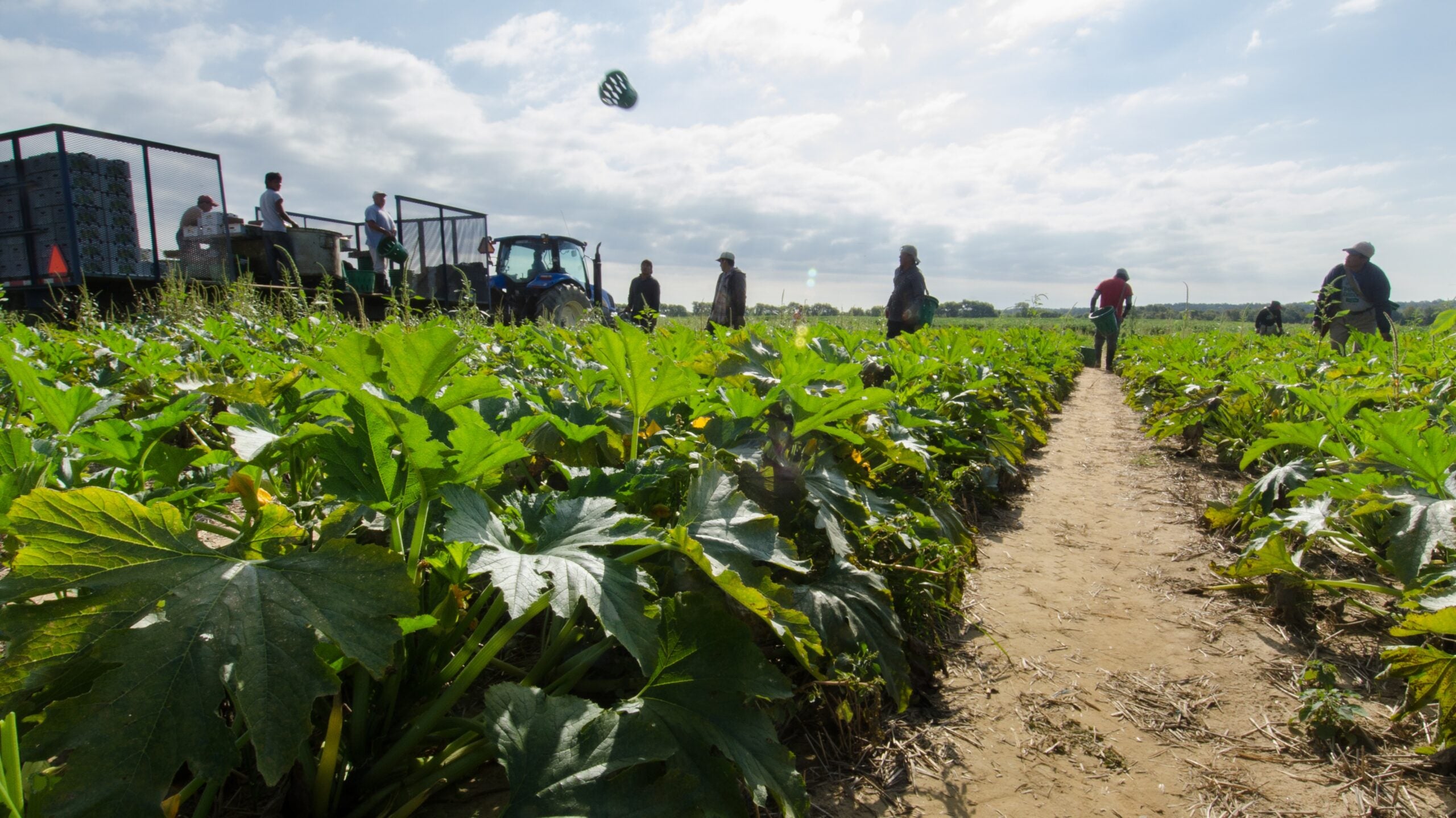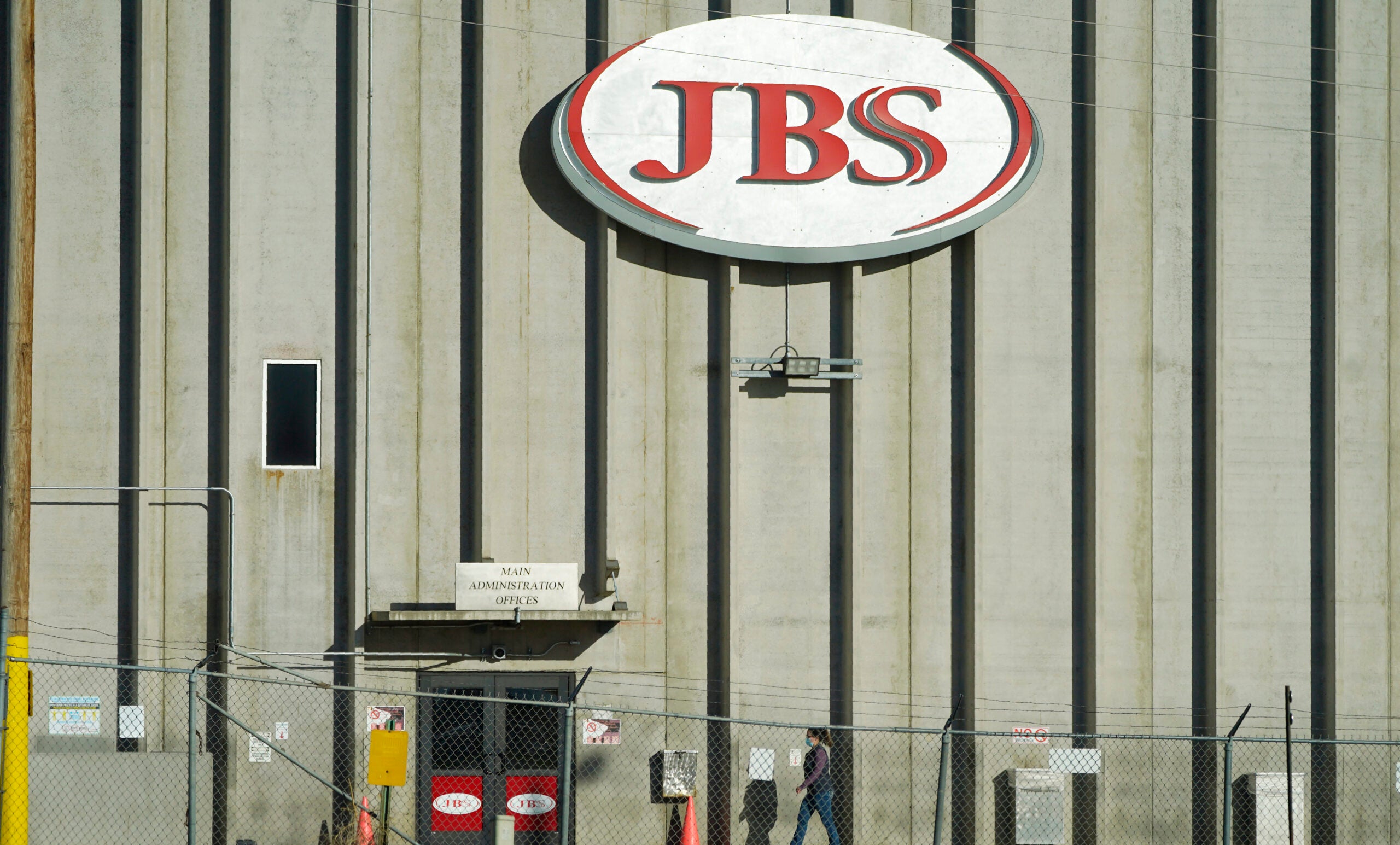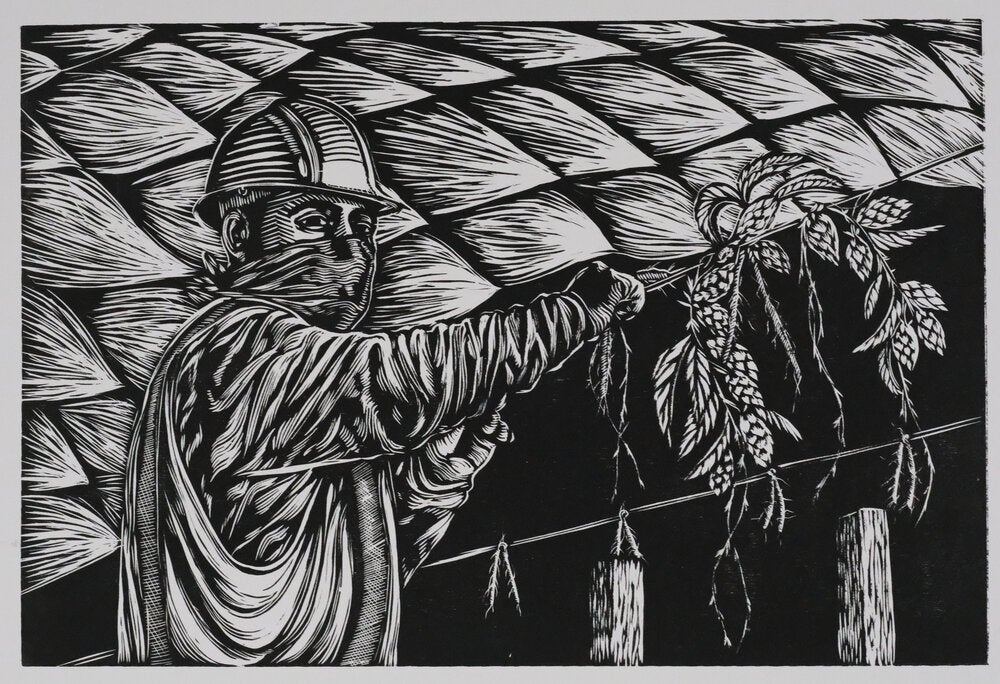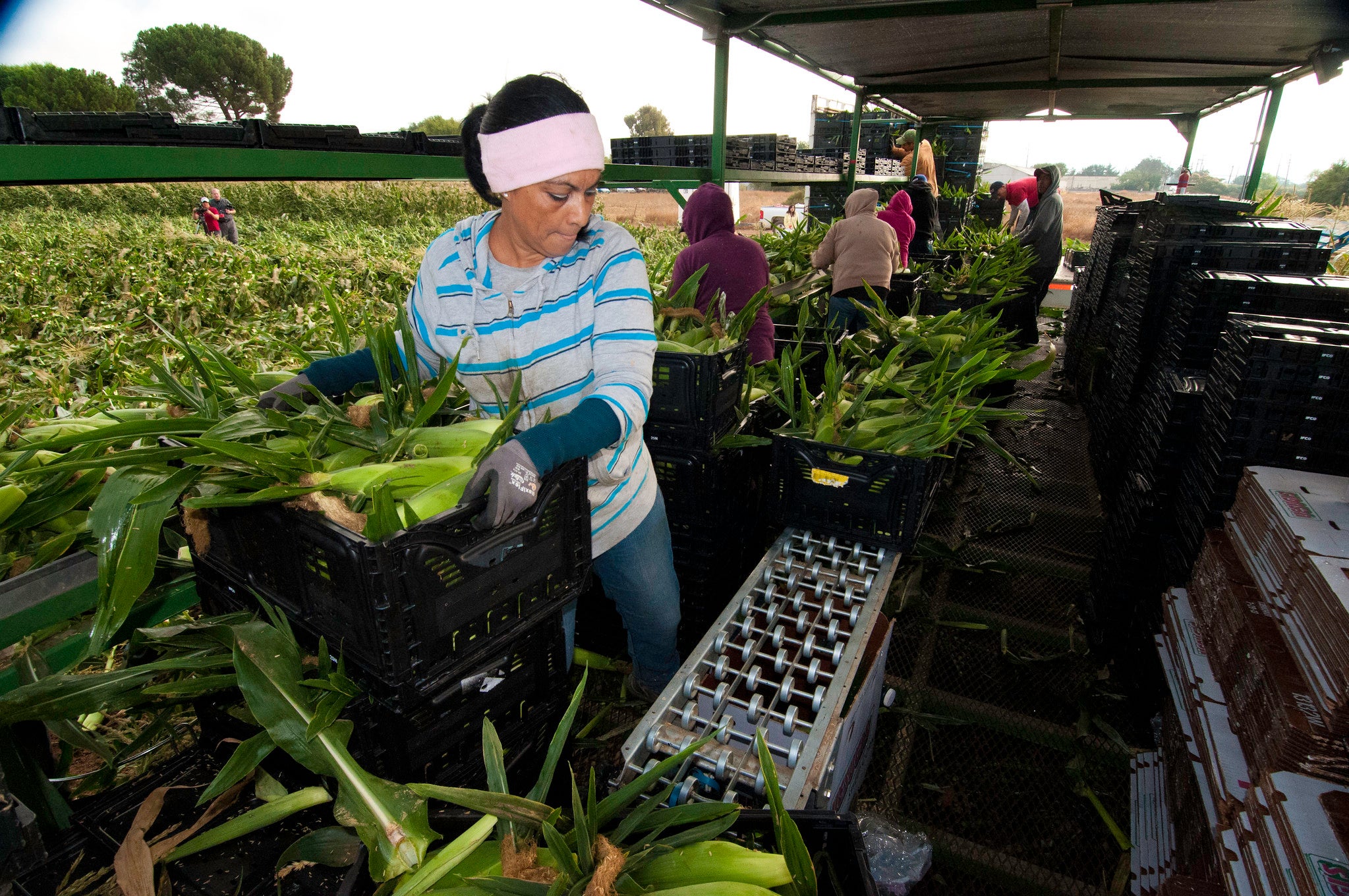Migrant farm workers in Wisconsin will have additional heat, health and safety protections this year under revised administrative rules that took effect earlier this month.
The state Department of Workforce Development, which administers the state’s Migrant and Seasonal Farm Worker program, says it’s the first significant update to migrant labor rules since 2007.
The changes establish new requirements for disease and illness prevention in labor camps in case of a public health emergency, requiring certain diseases and symptoms be reported to local health departments, and for sick workers to be isolated.
Stay informed on the latest news
Sign up for WPR’s email newsletter.
The updates also require employers to develop a heat illness prevention plan that allows for shade and breaks when temperatures are above 80 degrees and additional procedures when it’s hotter than 95 degrees.
Other revisions update requirements for living standards in migrant labor camps that promote health and safety. Some changes that require employers to make physical modifications to buildings will not take effect immediately.
In a statement, DWD Secretary Amy Pechacek said seasonal farm workers are essential to the state’s workforce and play a critical role in ensuring families have food on their tables.
“These changes ensure important protections are in place, benefiting migrant seasonal farm workers and camp operators,” Pechacek said. “We thank members of the Governor’s Council on Migrant Labor and many other agencies and stakeholders for helping to inform the first substantive changes to the rules in some 17 years.”
The agency regulated roughly 281 migrant labor contractors and employers last year. DWD estimates roughly 125 employers operated 261 migrant labor camps across Wisconsin in 2023.
Jose Martinez is interim chief executive of UMOS, a nonprofit migrant advocacy organization. He served on the Governor’s Council on Migrant Labor, along with other advocates, employers and bipartisan lawmakers.
Martinez said the state’s more than 6,000 seasonal migrant farm workers are the backbone of Wisconsin’s $3 billion agricultural industry. He said that’s why it’s important they have adequate protections in place.
“For Wisconsin and the agriculture community to continue to be successful, they have to rely on individuals that come to the state of Wisconsin to do some of the work that perhaps some of us do not want to do because some of this work is labor intensive,” he said.
Martinez said the rule changes stemmed from lessons learned during the COVID-19 pandemic when DWD instituted emergency rules to help prevent the spread of disease at migrant camps. He said the regulations around transmissible diseases help to ensure employers and workers are ready in case of another national health emergency.
The updated heat protections, meanwhile, are meant to help prevent workers from suffering heat stroke and stop employers from preventing workers from calling emergency services if needed. Martinez said there have been instances in other states where workers have died from extreme heat due to a lack of proper protections.
In fact, one-fifth of heat-related deaths reported to the Occupational Safety and Health Administration between 2017 and 2022 were among agricultural workers, according to Harvest Public Media, Investigate Midwest and the Mississippi River Basin Ag & Water Desk.
“We believe that these changes benefit the farm worker, and that’s most important,” Martinez said. “It provides more consistency and ensures that there are measures in place for camp operators in camp sites or in fields. We wanted to make sure that all of these areas or all these elements, inclusively, were being addressed as we looked at it in terms of worker safety.”
Even though Martinez said he believes the updated rules are a step in the right direction, he also said some agricultural industries are exempt from the regulations governing seasonal farm workers, including the dairy and meat packing industries.
Erica Sweitzer-Beckman, an attorney with Legal Action of Wisconsin and member of the Governor’s Council on Migrant Labor, recently spoke about the new protections with WPR’s “The Morning Show.” She said the camps that are regulated must be licensed by the state, ensuring someone from the DWD reviews a camp to make sure it’s following state standards.
“The increased standards did not come with additional resources for enforcement,” she said. “There are currently just two migrant labor inspectors devoted to enforcing these standards, so that is certainly a shortcoming in terms of making any improvements in the law a reality.”
Wisconsin Public Radio, © Copyright 2025, Board of Regents of the University of Wisconsin System and Wisconsin Educational Communications Board.





